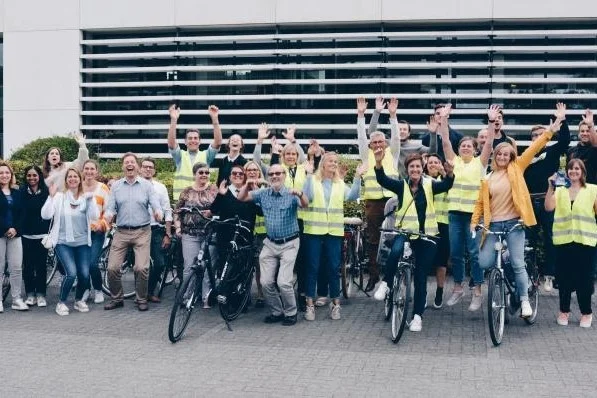Belgium is pretty progressive on CSR

The Netherlands have a number of leading businesses. In terms of politics the difference is harder to denominate. Sustainable entrepreneurship in Belgium is more about social economics, non-profit businesses or corporations who watch over people with poor job prospects. This load of CSR in a country is determined partially by politics. There are agreements as well, for example circular economy. For some reason they’re a bit faster in adopting the sustainable goals agenda in Belgium. There is a lot of activity in that area, also in Antwerp.
Belgium is pretty progressive on CSR, compared to other countries. Ten, twelve years ago the initiative to sensitize businesses in terms of CSR was introduced. MVO Netherlands then originated, but in Belgium it grew more fragmented. In Belgium we also focus on all themes; ethics, integrity, circular economy, people with poor job prospects. The Netherlands and other countries are ahead on themes like sustainable business models. We, as a Competence Center, try to partially play a supportive role in this. The Barometer of Antwerp Management School indicated that the upward trend of sustainable entrepreneurship kept on growing in Belgian corporations.
These entrepreneurs are responsive to energy saving, because it yields short-term return. Family businesses also look ahead on the long term, and thus make more sustainable decisions. There’s generally quite a bit of ignorance. They usually don’t know what circular economy is. Coincidentally this is a very specific concept, but you have to communicate on a practical level to find out what concepts they already use. More and more managers of small enterprises come to AMS. They are interested, though, but corporations experience the barrier to invest in it short term.
There are quite a few sustainability standards for Belgian CSR manager’s degree of successful. You could measure them on all of these standards from inside the corporation, but there is no comprehensive sustainability test. The sustainable goals agenda contains the most important global issues. Business themselves can declare what targets they deem relevant and make a different out of their core business. That’s how you translate sustainability to your own business. That way it doesn’t only cost you, but you can consciously determine your biggest goal.
 Albania
Albania Algeria
Algeria Andorra
Andorra Argentina
Argentina Armenia
Armenia Australia
Australia Austria
Austria Azerbaijan
Azerbaijan Bahrain
Bahrain Belgium
Belgium Bolivia
Bolivia Brazil
Brazil Bulgaria
Bulgaria Cambodia
Cambodia Cameroon
Cameroon Canada
Canada Chad
Chad Chile
Chile China
China Colombia
Colombia Costa Rica
Costa Rica Croatia
Croatia Cyprus
Cyprus Czechia
Czechia Denmark
Denmark Ecuador
Ecuador Egypt
Egypt Finland
Finland France
France Georgia
Georgia Germany
Germany Ghana
Ghana Greece
Greece Hungary
Hungary Iceland
Iceland India
India Indonesia
Indonesia Ireland
Ireland Italy
Italy Jamaica
Jamaica Japan
Japan Jordan
Jordan Kazakhstan
Kazakhstan Kenya
Kenya Kuwait
Kuwait Latvia
Latvia Lebanon
Lebanon Libya
Libya Lithuania
Lithuania Luxembourg
Luxembourg Malaysia
Malaysia Maldives
Maldives Mali
Mali Malta
Malta Mexico
Mexico Moldova
Moldova Monaco
Monaco Morocco
Morocco Netherlands
Netherlands New Zealand
New Zealand Nigeria
Nigeria North Macedonia
North Macedonia Norway
Norway Oman
Oman




